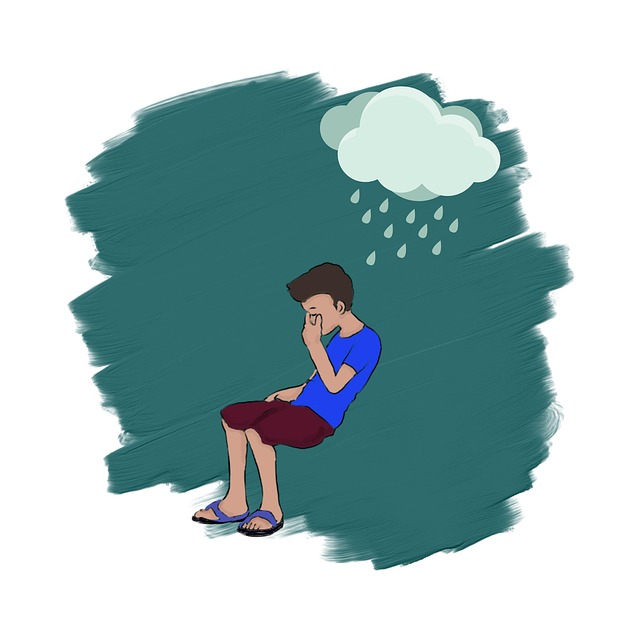Burnout among healthcare providers in Lone Tree Blended Families Therapy is addressed through understanding its root causes: excessive workload, lack of control, and poor social support. This leads to emotional exhaustion, reduced job satisfaction, and potential health issues. The therapy practice combats burnout by fostering a supportive environment with open communication, team-building activities centered around Mind Over Matter, and mental health awareness campaigns. Self-care strategies like exercise, mindfulness, and supervision are encouraged, emphasizing resilience building. Open communication channels, peer support groups, and stress management workshops further mitigate burnout in healthcare settings. Continuous training, including self-awareness exercises and community development programs, is vital for professional well-being and sustainable patient care.
Healthcare provider burnout is a growing concern, impacting not only individual well-being but also patient care. This article explores comprehensive strategies to combat burnout, drawing insights from Lone Tree Blended Families Therapy, a leading practice in fostering supportive environments. We delve into understanding the root causes and effects of burnout, offering solutions such as self-care practices, open communication, peer support systems, and continuous training. By implementing these strategies, healthcare providers can enhance job satisfaction and resilience, ultimately improving patient outcomes.
- Understanding Burnout in Healthcare Providers: Causes and Impact
- Creating a Supportive Work Environment at Lone Tree Blended Families Therapy
- Implementing Self-Care Practices for Long-Term Sustainability
- Fostering Open Communication and Peer Support Systems
- Continuous Training and Professional Development Strategies to Combat Burnout
Understanding Burnout in Healthcare Providers: Causes and Impact

Burnout among healthcare providers is a growing concern, impacting both individual well-being and patient care quality. It manifests as emotional exhaustion, depersonalization, and reduced personal accomplishment—a state often driven by excessive workload, lack of control over work processes, and poor social support. In the unique context of Lone Tree Blended Families Therapy, understanding these root causes is paramount. Healthcare professionals, especially in family therapy settings, frequently encounter highly demanding cases while juggling complex patient dynamics and administrative tasks.
The impact of burnout can be severe. It leads to decreased job satisfaction, increased stress levels, and potential errors in judgment. Moreover, it may result in physical health issues, emotional disengagement from patients, and even career departure. Effective prevention strategies must address these underlying factors, focusing on communication strategies to enhance patient-provider relationships, resilience building to cope with work demands, and inner strength development to foster a sense of purpose and control among healthcare providers.
Creating a Supportive Work Environment at Lone Tree Blended Families Therapy

At Lone Tree Blended Families Therapy, we understand that a supportive work environment plays a pivotal role in preventing burnout among healthcare providers. Our practice is meticulously designed to foster a culture of care and collaboration, where therapists can thrive both professionally and personally. We prioritize open communication channels, encouraging staff to share their concerns and ideas openly. This creates an atmosphere of trust and mutual respect, ensuring everyone feels valued and heard.
Through regular team-building activities and workshops focused on Mind Over Matter Principles, we promote inner strength development among our providers. These initiatives not only enhance job satisfaction but also equip therapists with effective coping strategies to manage stress and prevent burnout. By integrating public awareness campaigns for mental health into our routine, Lone Tree Blended Families Therapy strives to normalize conversations about well-being, reducing the stigma associated with seeking support.
Implementing Self-Care Practices for Long-Term Sustainability

In the ongoing fight against healthcare provider burnout, implementing self-care practices is a proactive strategy that fosters long-term sustainability. Lone Tree Blended Families Therapy emphasizes the importance of mental health awareness and resilience building for professionals in this demanding field. By integrating self-care into their daily routines, providers can mitigate stress, enhance well-being, and maintain the compassion and effectiveness essential to patient care. This approach not only benefits individual therapists but also positively impacts their ability to support clients navigating challenging life circumstances.
The integration of self-care practices requires a holistic view that includes physical, emotional, and mental health considerations. Regular exercise, mindfulness techniques, adequate sleep, and balanced nutrition are cornerstones of resilience building for mental health professionals. Additionally, seeking supervision and engaging in peer support networks can provide valuable opportunities for risk assessment for mental health professionals, allowing them to identify potential burnout triggers early on. These proactive measures ensure that healthcare providers are equipped to meet the demands of their work while maintaining personal well-being.
Fostering Open Communication and Peer Support Systems

In healthcare settings, fostering open communication is a powerful tool to prevent burnout among providers. Encouraging staff members to share their concerns, challenges, and experiences creates an environment where they feel heard and supported. This can be facilitated through regular team meetings, anonymous feedback channels, or even peer support groups modeled after successful programs like Lone Tree Blended Families Therapy. Such platforms allow medical professionals to connect with colleagues who understand their unique pressures, offering a sense of community and reducing the burden of isolation often associated with burnout.
Implementing Mind Over Matter principles through stress management workshops within the organization can further enhance this support system. These workshops teach providers practical techniques for managing anxiety relief and promoting resilience. By equipping healthcare workers with tools to navigate stressful situations, organizations can foster a culture where emotional well-being is prioritized alongside patient care. This holistic approach, combined with open communication, helps build a strong peer support network, ultimately contributing to a healthier work environment and reducing the risk of burnout.
Continuous Training and Professional Development Strategies to Combat Burnout

In today’s fast-paced healthcare industry, continuous training and professional development are essential strategies to combat burnout among healthcare providers. Regular workshops, seminars, and online courses focused on updating clinical skills and knowledge can help professionals stay engaged and motivated. These educational opportunities not only equip healthcare workers with new tools but also foster a sense of community and support, which is crucial for mental well-being. At Lone Tree Blended Families Therapy, for instance, therapists regularly participate in self-awareness exercises and inner strength development programs to enhance their practice and personal resilience.
Additionally, training should emphasize effective stress management techniques tailored to the unique demands of healthcare work. This includes mindfulness practices, time management strategies, and emotional intelligence development. By incorporating these into daily routines, healthcare providers can navigate the challenges of their roles with greater ease and resilience, thereby reducing the risk of burnout. Such proactive measures not only benefit individual therapists but also contribute to a healthier and more sustainable healthcare environment for the entire team.
Burnout among healthcare providers is a pressing issue, but through proactive strategies like those implemented at Lone Tree Blended Families Therapy—from fostering supportive work environments and encouraging self-care to promoting open communication and continuous training—it can be effectively prevented. By integrating these practices, healthcare professionals can enhance job satisfaction, improve patient outcomes, and cultivate a more sustainable career path, ultimately enriching both their lives and the communities they serve.












